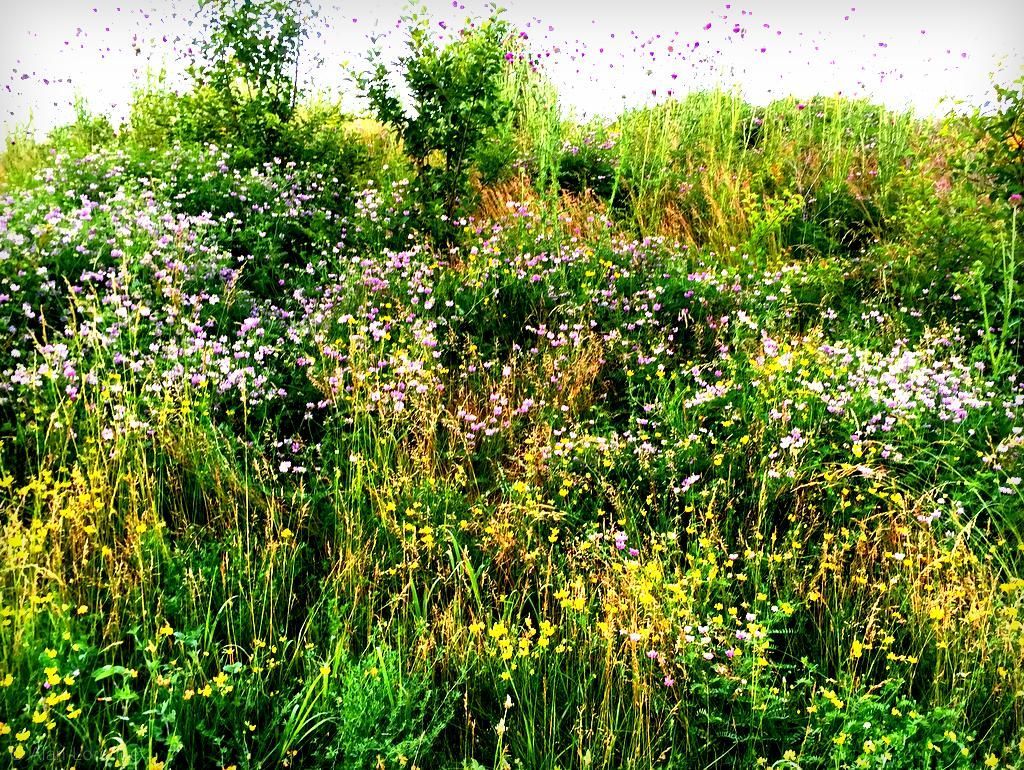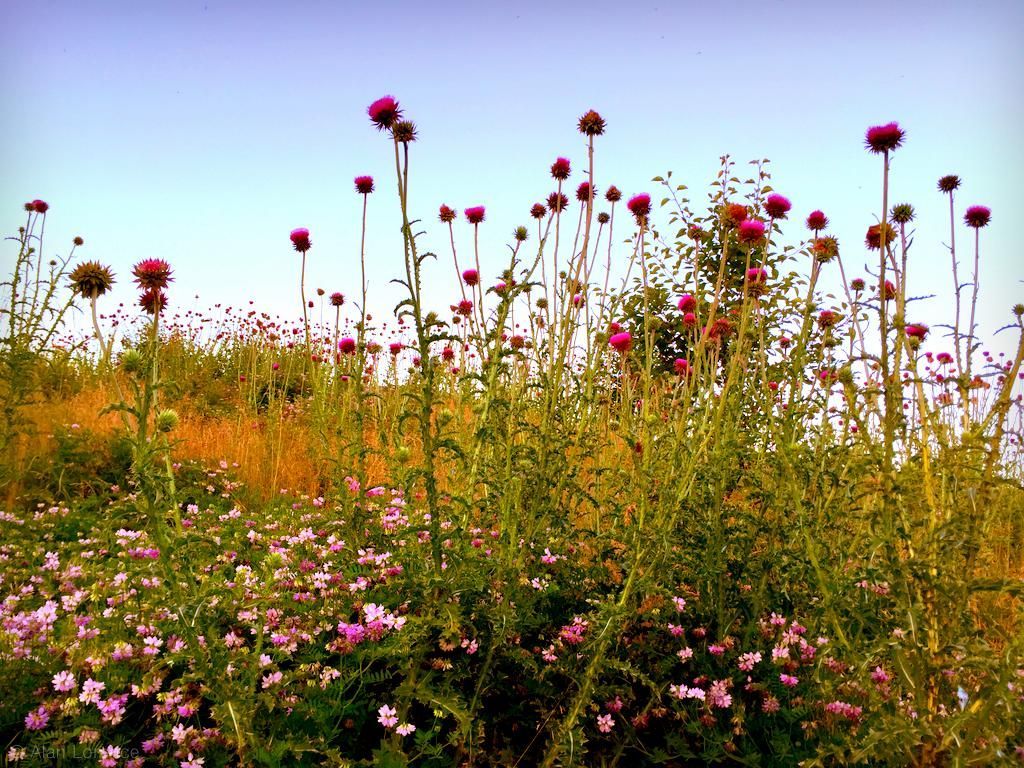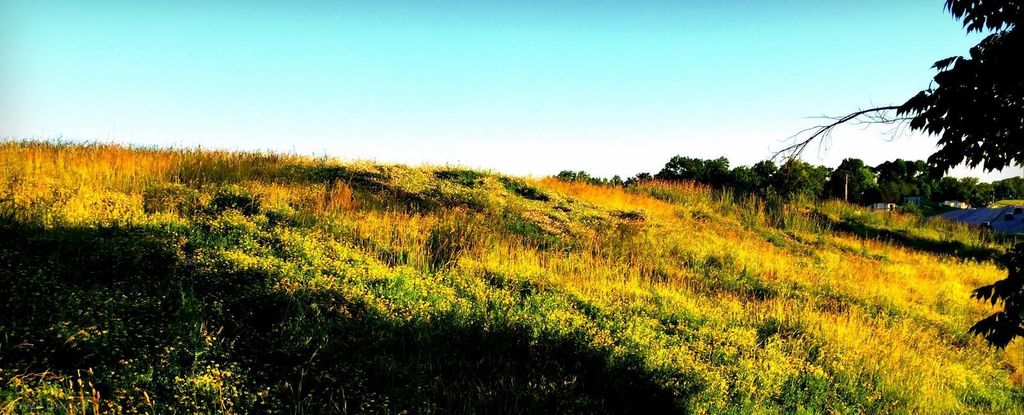Looking again
A month ago on a morning walk to the nearby supermarket I noticed that the wild hill next to the highway -- where I've released many a captured mouse and mole -- looked quite beautiful. Great texture and color as there were large swathes of blooms. So nice!
I only had my phone with me but snapped some photos anyway. Needless to say that the images captured did not impress me, and I left them to be forgotten. Today though I took another look, processed the heck out of them to try and restore some of the "magic" that I saw that morning, and am now sharing with you.
I'd have to go back over very old photos to verify, but if I remember correctly this hill is purely a remnant of the highway construction, the soil a very gravelly mix (I've tried digging holes in it before).
Everything growing here is a volunteer. (The things I've planted don't seem to have survived.)
It can be quite pretty at times.
Are any of these plants natives, or even desirable?
I should probably get out there and remove some thistles before they all go to seed, as a few thistles are nice but we don't want them taking over.
Why don't I plant some Asclepias syriaca (common milkweed) out there where it has room to spread and is easily seen by any migrating monarchs?
I'm glad I gave these photos a second chance!
.












Milkweed plants would be a GREAT idea here!
Looks good that it almost looks like it's been deliberately planted that way!
I like it when nature seems to take back developed areas! In the city, the street department works with Operation Brightside to plant wildflowers along the highway. They plant a lot of red clover and bachelor buttons and then let them go to seed before mowing. Have you ever seen the daffodils they plant in big patterns? It's a welcome sign of spring!
I think I've identified the yellow flowered plant: bird's foot trefoil, Lotus corniculatus. Can anybody verify?